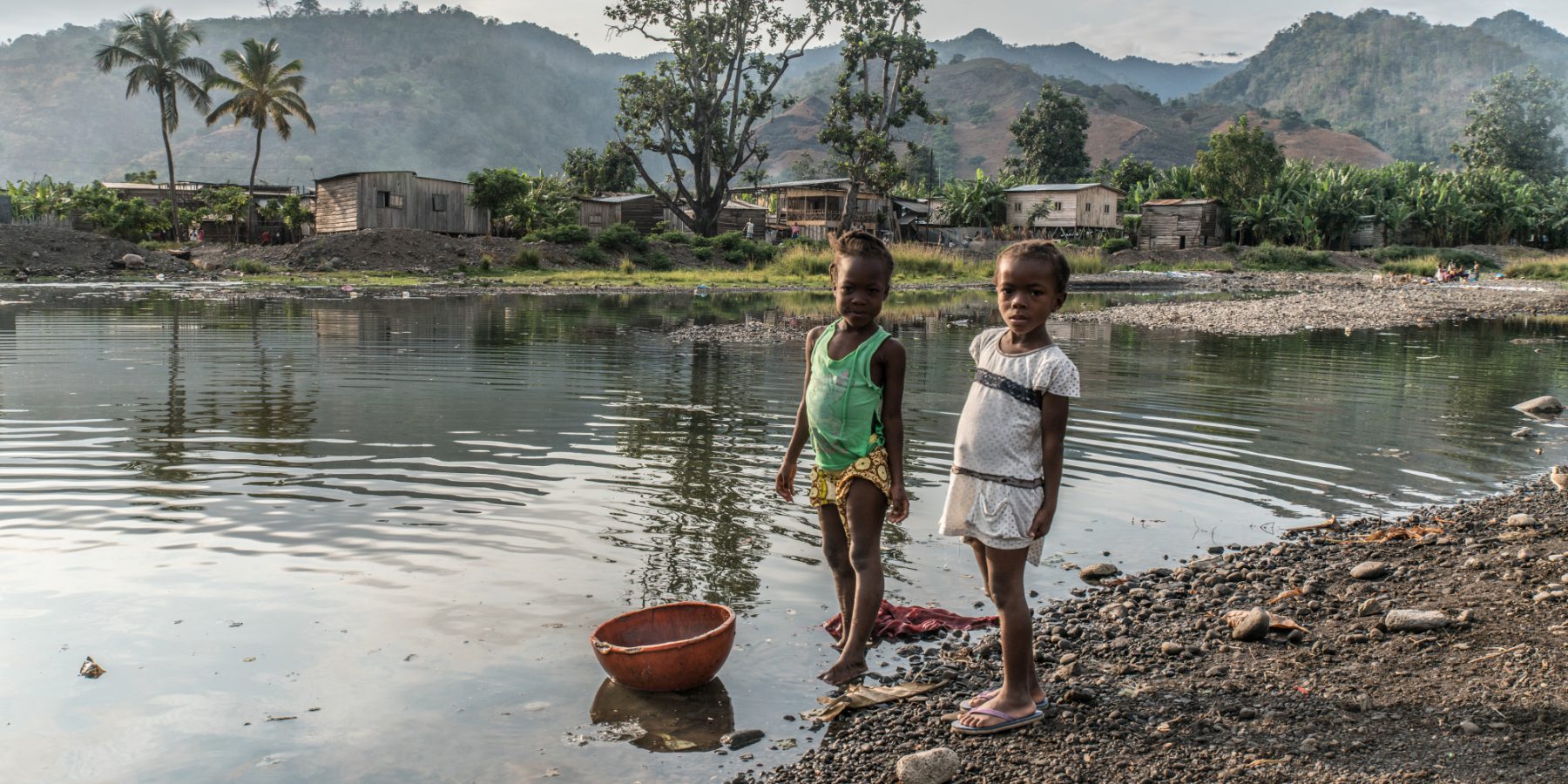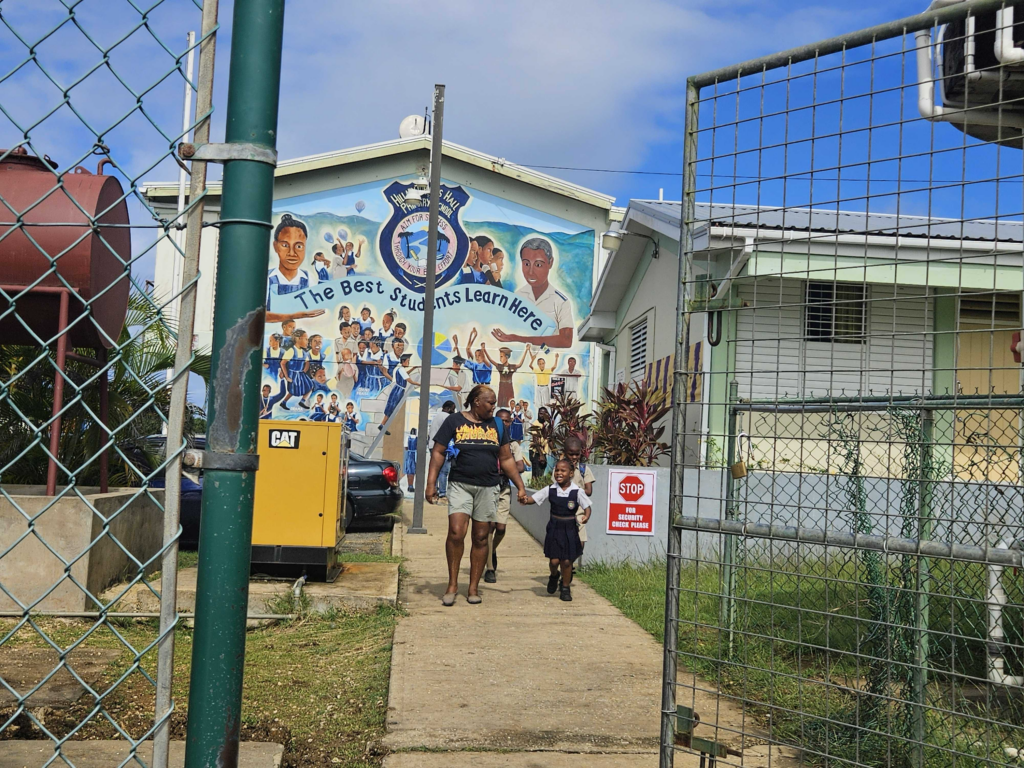Children and Youth Action Summit Highlights Urgency for Climate Justice in Small Island Developing States (SIDS)

May 24, 2024
The Children and Youth Action Summit at SIDS4 highlights the vulnerability of young people in Small Island Developing States to climate change, poverty, and mental health challenges. UNICEF advocates for their meaningful engagement in policymaking.
On the eve of the 4th International Conference on Small Island Developing States (SIDS4) in Antigua and Barbuda, children and young people are gathering in force to ensure that their voices are heard at this once-in-a-decade global event.
The Children and Youth Action Summit, running from May 24-26, brings together some 60 young leaders from the three SIDS regions, comprised of 57 nations scattered across our oceans. These young activists are rightly sounding the alarm: they face an uncertain future in countries that are among the most vulnerable on the planet.
SIDS tend to be remote, highly dependent on external markets, with undiversified economies which are susceptible to external shocks. Extreme weather events, rising seas and temperatures, coastal erosion and biodiversity loss – all caused or exacerbated by climate change – are also damaging lives. With around 65 million people, SIDS represent less than one per cent of the world’s population but carry a disproportionate burden of challenges.
Children and young people are especially vulnerable. They are more affected by the ravages of climate change: a degraded environment affects them physically and psychologically, with bodies less able to cope with extremes of weather and pollution. In addition, as well as the billions of dollars of loss and damage following the 2017 Caribbean hurricanes, nearly three-quarters of children in Dominica became displaced in the aftermath of Hurricane Maria.
Young people in SIDS are often disproportionately affected by poverty, lack of opportunity, undernutrition or obesity, and educational disruption. Their mental health is also under threat. In a recent survey, 7 out of every 10 young respondents in Latin America and the Caribbean reported experiencing mental health challenges as a result of the impact of the COVID-19 pandemic.
At UNICEF, we believe that the meaningful engagement of children and young people in policymaking is vital as we aim to ensure that all children, everywhere, enjoy the rights enshrined in the UN Convention on the Rights of the Child. By empowering children and incorporating their perspectives into development initiatives, we can foster resilient, enduring communities.
This is why the Children and Youth Action Summit is so important. Their Commitment to Action, ratified at the event, will be presented to global leaders at the SIDS4 conference (27-30 May) who are meeting to build a new ten-year action plan. The commitment will lay out a pathway to transform education systems which embrace digitalisation and new technologies, better training and employment prospects, improved physical and mental health, inclusion of the most marginalised and vulnerable in policy dialogues and interventions, a cleaner, greener planet and more sustainable development characterised by resilient economies.
These are ambitious asks. But they reflect the magnitude of the issues facing our children and young people as they envision – and seek to create – a world they want to live in.
At UNICEF, we know it is more critical than ever to guarantee that no child is left behind and that all children have access to the essential services they need, especially after storms, floods, droughts and earthquakes.
The decisions made and actions taken – or not taken – at SIDS4 will shape the lives of children for a generation to come. We can work to ensure a sustainable, equitable, and resilient future for children, their families and their communities. Millions of children and young people are counting on us. They are fighting for their future. We cannot let them down.
Pieter Bult is the UNICEF Representative for the Eastern Caribbean Area.


